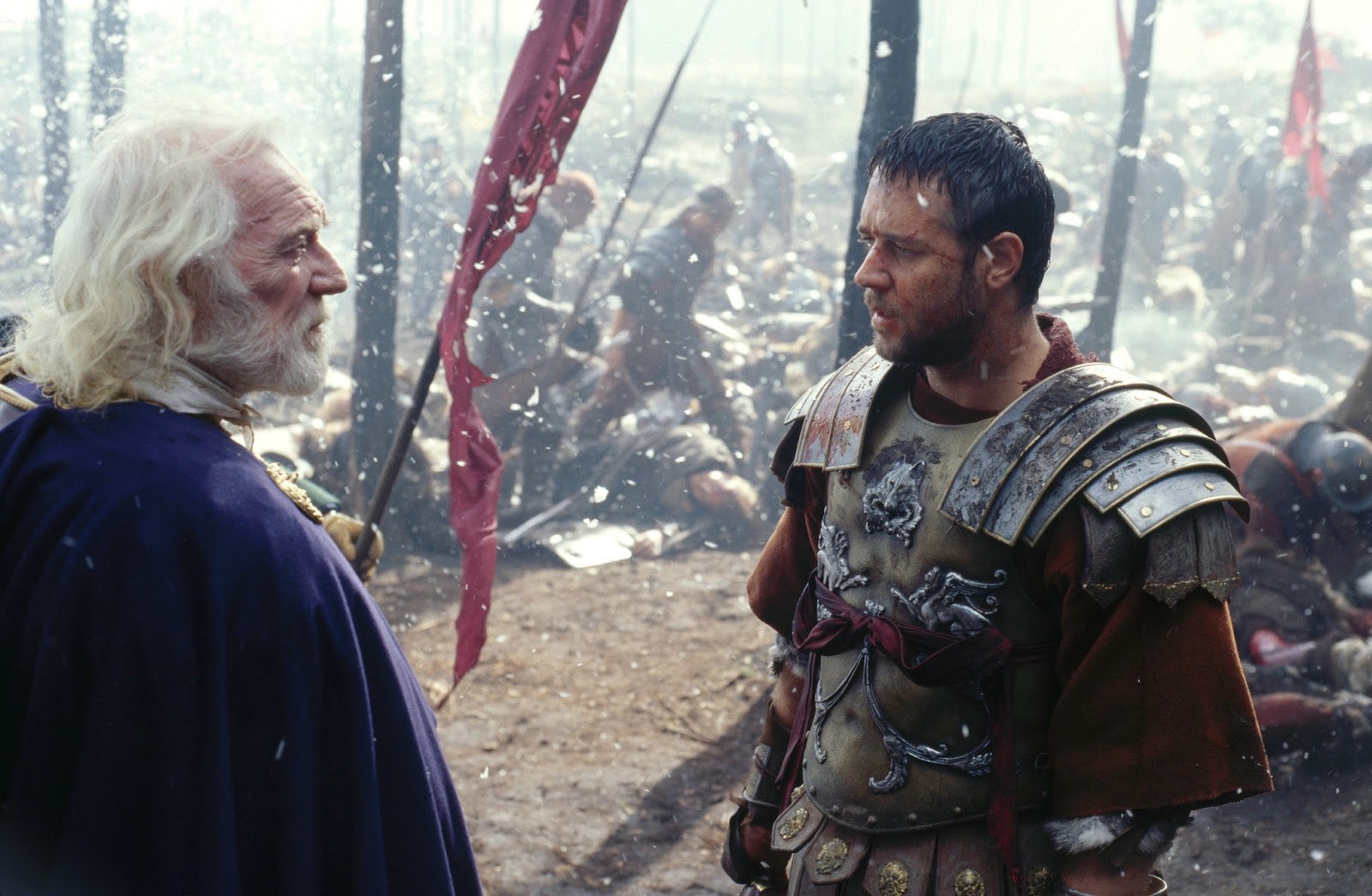Gladiator (2000)

Ridley Scott’s “Gladiator,” released in 2000, stands as a monumental epic that captivates audiences with its grand scale, visceral action, and profound exploration of honor, vengeance, and moral redemption. Set against the backdrop of ancient Rome, the film follows the journey of Maximus Decimus Meridius (played by Russell Crowe), a loyal general who is betrayed and seeks vengeance against the corrupt Emperor Commodus (played by Joaquin Phoenix).
The film opens with a sweeping portrayal of Maximus as a respected Roman general and beloved leader of the army, known for his unwavering loyalty to the aging Emperor Marcus Aurelius (played by Richard Harris). However, Commodus, Marcus Aurelius’s power-hungry son, betrays Maximus by murdering his father and seizing the throne. Maximus narrowly escapes execution but is captured and sold into slavery. From this point on, Maximus’s quest for vengeance becomes intertwined with his desire to restore honor to Rome and fulfill the dying wish of Marcus Aurelius to return power to the people.

Central to the film’s narrative is Maximus’s transformation from a revered military leader to a gladiator who rises through the ranks of the arena to challenge Commodus’s tyrannical rule. Russell Crowe’s portrayal of Maximus is characterized by stoic determination and quiet intensity, embodying the classic hero archetype who inspires loyalty and admiration from both fellow slaves and the Roman populace.
Joaquin Phoenix delivers a chilling performance as Commodus, portraying him as a complex antagonist driven by insecurities, narcissism, and a desperate desire for validation and power. His portrayal adds layers of depth to the character, highlighting the contrast between Maximus’s honorable quest and Commodus’s descent into moral depravity.

Thematically, “Gladiator” explores timeless themes of justice, honor, and the consequences of unchecked ambition. Maximus’s journey is not just one of vengeance but also of moral redemption, as he grapples with his own sense of duty and loyalty to Rome. The film raises questions about the price of power and the sacrifices made in the pursuit of personal glory, contrasting Maximus’s selflessness with Commodus’s ruthless pursuit of power at any cost.
Visually, Ridley Scott’s direction is masterful, with sweeping cinematography that captures the grandeur of ancient Rome, from the bustling streets and majestic coliseum to the intricate details of gladiatorial combat. The film’s battle sequences are visceral and intense, showcasing the brutality and spectacle of the arena while also emphasizing Maximus’s skill as a warrior and leader.

The production design and costumes evoke a sense of historical authenticity, immersing viewers in the opulence and decadence of Roman society during its twilight years. Hans Zimmer’s evocative score complements the film’s epic scope, heightening emotional moments and underscoring the gravity of Maximus’s quest for justice.
“Gladiator” received critical acclaim upon its release for its compelling storytelling, strong performances, and technical achievements. It won multiple Academy Awards, including Best Picture and Best Actor for Russell Crowe, cementing its status as a cinematic masterpiece that continues to resonate with audiences worldwide.
In conclusion, “Gladiator” is more than a tale of revenge and spectacle—it is a profound exploration of honor, sacrifice, and the enduring struggle between good and evil. Through its compelling characters, stunning visuals, and thematic richness, the film remains a timeless epic that celebrates the indomitable spirit of the human spirit and the quest for justice in a morally ambiguous world.










